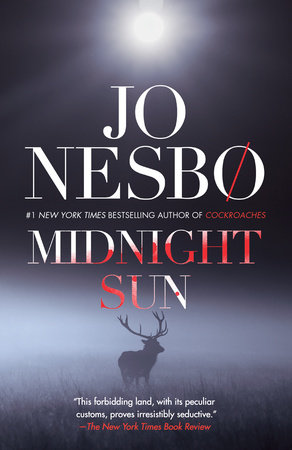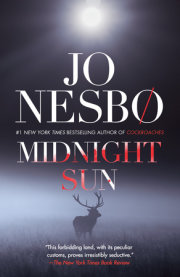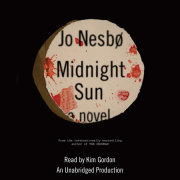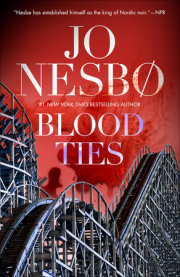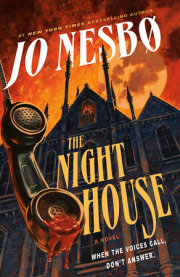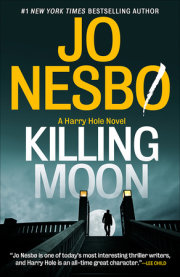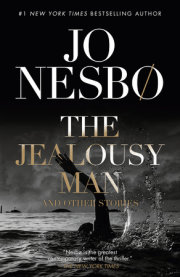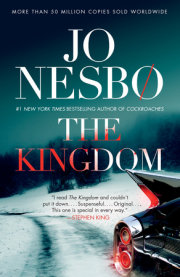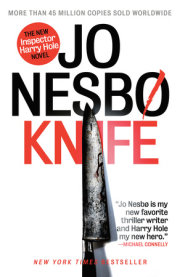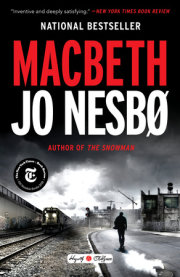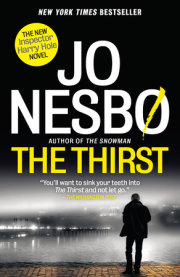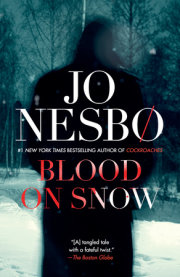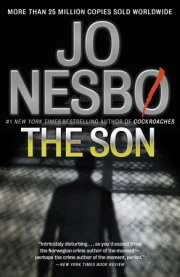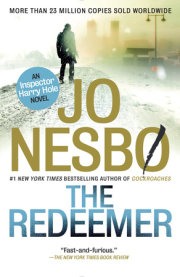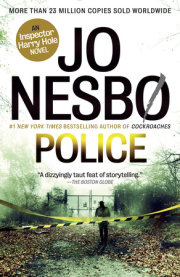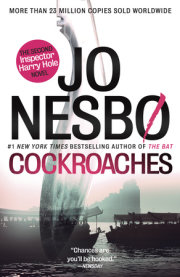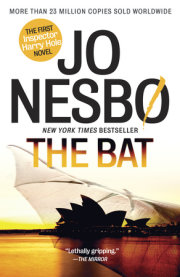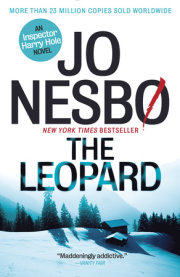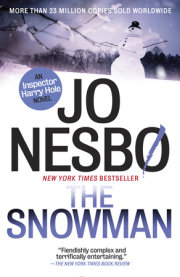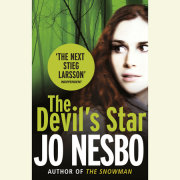Excerpt
CHAPTER 1
How are we to start this story? I wish I could say that we’ll start at the beginning. But I don’t know where it starts. Just like everyone else, I’m not truly aware of the real sequence of cause and effect in my life.
Does the story start when I realised that I was only the fourth-best soccer player in the class? When Basse, my grandfather, showed me the drawings—his own drawings—of La Sagrada Família? When I took my first drag on a cigarette and heard my first track by the Grateful Dead? When I read Kant at university and thought I understood it? When I sold my first lump of hash? Or did it start when I kissed Bobby—who’s actually a girl—or the first time I saw the tiny, wrinkled creature who would end up being called Anna screaming up at me? Perhaps it was when I was sitting in the Fisherman’s stinking back room and he was telling me what he wanted me to do. I don’t know. We store up all sorts of stories with fabricated logic, so that life can look as though it has some meaning.
So I may as well start here, in the midst of the confusion, at a time and a place where fate seemed to be taking a short break, holding its breath. When, just for a moment, I thought I was not only on my way, but had also already arrived.
I got off the bus in the middle of the night. Screwed my eyes up against the sun. It was scouring across an island out to sea, off to the north. Red and dull. Like me. Beyond it lay yet more sea. And, beyond that, the North Pole. Perhaps this was somewhere they wouldn’t find me.
I looked round. In the three other points of the compass low mountain ridges sloped down towards me. Red and green heather, rocks, a few clumps of stunted birch trees. To the east the land slid into the sea, stony and flat as a pancake, and to the southwest it was as if it had been cut with a knife at the point where the sea started. A hundred metres or so above the motionless sea a plateau of open landscape took over, stretching inland. The Finnmark plateau. The end of the line, as Grandfather used to say.
The hard-packed gravel road I stood on led to a cluster of low buildings. The only thing that stuck out was the church tower. I’d woken up in my seat on the bus just as we were passing a sign with the name “Kåsund” on it, down by the shore, near a wooden jetty. And I thought, why not? and pulled the cord above the window to illuminate the stop sign above the bus driver.
I put on the jacket of my suit, grabbed my leather case and started walking. The pistol in the jacket pocket bounced against my hip. Right on the bone—I’d always been too thin. I stopped and tugged my money belt down under my shirt so that the notes would cushion the knocks.
There wasn’t a cloud in the sky, and the air was so clear that I felt I could see a very long way. As far as the eye can see, as the expression goes. They say that the Finnmark plateau is beautiful. Fucked if I know. Isn’t that just the sort of thing people say about inhospitable places? Either to make themselves seem a bit tough, to lay claim to some sort of insight or superiority, the way people boast about liking incomprehensible music or unreadable literature? I’d done it myself. I used to think it might make up for at least a few of the things about me that weren’t good enough. Or else it was simply meant as a consolation to the few people who had to live there: “It’s so beautiful here.” Because what was so beautiful about this flat, monotonous, bleak landscape? It’s like Mars. A red desert. Uninhabitable and cruel. The perfect hiding place. Hopefully.
The branches of a clump of trees by the side of the road in front of me moved. A moment later a figure leaped across the ditch and onto the road. My hand went automatically for the pistol but I stopped it: it wasn’t one of them. This character looked like a joker who’d jumped straight out of a pack of cards.
“Good evening!” he called to me.
He walked towards me with a strange, rolling gait, so bandy-legged that I could see the road stretch out towards the village between his legs. As he came closer I saw he wasn’t wearing a court jester’s hat on his head but a Sámi cap. Blue, red and yellow—only the bells were missing. He was wearing pale leather boots, and his blue anorak, patched with black tape, had several tears revealing yellow-coloured padding that looked more like loft insulation than feathers.
“Forgive me asking,” he said. “But who are you?”
He was at least two heads shorter than I. His face was broad, his grin wide, and his eyes at something of a slant. If you piled up all the clichés people in Oslo have about what a Sámi or native Laplander looked like, you’d end up with this bloke.
“I came on the bus,” I said.
“So I saw. I’m Mattis.”
“Mattis,” I repeated, to gain a few seconds to think about the answer to his next inevitable question.
“Who are you, then?”
“Ulf,” I said. It seemed as good a name as any.
“And what are you doing in Kåsund?”
“I’m just visiting,” I said, nodding towards the cluster of houses.
“Who are you visiting?”
I shrugged. “No one special.”
“Are you from the Countryside Commission, or are you a preacher?”
I didn’t know what people from the Countryside Commission looked like, so I shook my head and ran a hand through my long, hippy hair. Maybe I should cut it. Less eye-catching.
“Forgive me asking,” he said again, “but what are you, then?”
“A hunter,” I said. It might have been the mention of the Countryside Commission. And it was as much the truth as it was a lie.
“Oh? Are you going to hunt here, Ulf?”
“Looks like good hunting territory.”
“Yes, but you’re a week early. Hunting season doesn’t start until the fifteenth of August.”
“Is there a hotel here?”
The Sámi smiled broadly. He coughed and spat out a brown lump that I hoped was chewing tobacco or something similar. It hit the ground with an audible splat.
“Lodging house?” I asked.
He shook his head.
“Camping cabin? Room to rent?” On the telephone pole behind him someone had stuck up a poster about a dance band who were going to be playing in Alta. So the city couldn’t be too far away. Maybe I should have stayed on the bus until it got there.
“How about you, Mattis?” I said, slapping away a gnat that was biting my forehead. “You wouldn’t happen to have a bed I could borrow tonight?”
“I burned my bed in the stove back in May. We had a cold May.”
“Sofa? Mattress?”
“Mattress?” He spread his hands out towards the heather-covered plateau.
“Thanks, but I like roofs and walls. I’ll have to try and find an empty dog kennel. Goodnight.” I set off towards the houses.
“The only kennel you’ll find in Kåsund is that one,” he called out plaintively, his voice falling.
I turned round. He was pointing at the building in front of the cluster of houses.
“The church?”
He nodded.
“Is it open in the middle of the night?”
Mattis tilted his head. “Do you know why no one steals anything in Kåsund? Because there’s nothing worth stealing apart from reindeer.”
Copyright © 2016 by Jo Nesbo. All rights reserved. No part of this excerpt may be reproduced or reprinted without permission in writing from the publisher.

